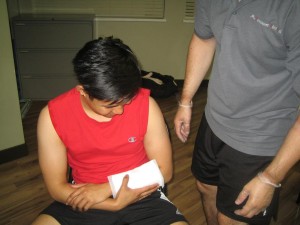During a surgical procedure, an incision is created on the skin and underlying structures to open them up. Take note that this incision should be closed either with staples or sutures at the end of the procedure. Wound dehiscence is a surgical site that does not seem to heal or breaks open before it is fully healed.
https://www.youtube.com/watch?v=MdqpCCIsn28
It can be considered as a complication of any type of surgery but most often occurs after an abdominal surgery. There are various risk factors that increase the chance for wound dehiscence such as increased age, obesity, poor nutrition, smoking and certain medical conditions such as kidney disease, diabetes or immune issues. Remember that wound dehiscence is a serious complication and must be treated by a doctor.

Issues with the sutures
Wound dehiscence can be due to the sutures that are placed in too tightly, sutures that are too slack or those that are incorrectly placed. For the proper healing process to occur, the two edges of the wound should meet and held together neatly without too much or too little pressure. The removal of the sutures too early before the skin edges have fully healed can also cause wound dehiscence.
Inflammation and infection
Other complications such as excess inflammation or infection at the surgical site can cause the edges of the wound to separate and dehisce. The best way to reduce the risk for infection is the application of special surgical dressings over the incision site.
Take note that these dressings should be kept clean and regularly changed to be effective. As for inflammation, it is another common complication of surgery that can lead to wound dehiscence, thus it is best to utilize an ice pack that is placed just above but not over the surgical site. By enrolling in a course on first aid, you can learn to spot the indications of an infection.
Pressure
Increased pressure over the surgical site especially in the abdomen can cause wound dehiscence. The increase in the pressure can be due to fluid accumulation known as ascites, severe coughing or sneezing, inflamed bowel, vomiting and straining while voiding. The first few days after any surgery, care must be observed on avoiding any pressure on the surgical site.
Use of corticosteroids
There are certain medications that can disrupt the natural ability of the body to heal. Prolonged use of corticosteroid medications can cause the skin to become fragile, thus requiring a longer healing time. Understandably, this can lead to wound dehiscence.
Medical issues
There are some medical issues that can affect the ability of the body to heal properly. Among those who have diabetes, it results to poor blood supply to some parts of the body, resulting to a delay in the healing process. Individuals who have diabetes and kidney disease have diminished synthesis of collage which is required in scar formation.
Cancer, chronic obstructive pulmonary disease (COPD), malnutrition, anemia, obesity and recent chemotherapy treatments can also increase the risk for wound dehiscence. A deficiency in vitamin C known as scurvy can impair the ability of the body to produce strong collage, which leads to poor scar formation and eventually wound dehiscence.
